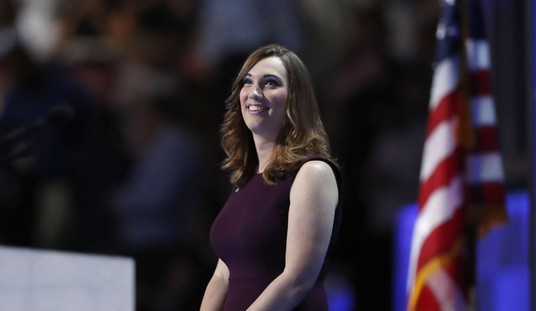The Internal Revenue Service commissioner said the agency has decided to not move forward — for now — with a proposed rule to define 501(c)(4) designations in a way that critics say would violate free speech protections.
Members of Congress had launched a legislative effort to stop the rule, a bill the White House vowed to block.
On Nov. 29, the IRS published a proposed rule that would have defined the term “candidate-related political activity,” and would amend current regulations by indicating that the promotion of social welfare does not include this type of activity, according to the IRS, which said the intention is to “reduce the need to conduct fact-intensive inquiries by replacing this test with more definitive rules.”
Activities that would disqualify an organization seeking 501(c)(4) status include “communications that expressly advocate for a clearly identified political candidate or candidates of a political party,” “any contribution that is recognized under campaign finance law as a reportable contribution,” hosting a candidate at an event within 60 days of a general election, and voter registration or “get-out-the-vote” drives.
House Oversight and Government Reform Committee Chairman Darrell Issa (R-Calif.), who urged IRS Commissioner John Koskinen to scrap the rule back in February, was satisfied that the rule was dumped but remained cautious about its resurrection.
“I am pleased the Internal Revenue Service has at least temporarily heeded the serious concerns expressed by myself and countless others, and has decided to scrap its proposed rule change restricting the political speech of social welfare groups,” Issa said. “Ultimately, the flawed IRS rule drew the ire of First Amendment advocates on both the left and right – these Americans, who broke records with critical comments about the proposed rule, deserve the most credit for blocking the implementation of the Administration’s wrong-headed and ill-advised proposal.”
Republican Study Committee Chairman Steve Scalise (R-La.) warned the IRS against bringing up a new incarnation of the rule.
“Today’s announcement is an admission that the IRS’s targeting of civic organizations for the political beliefs of their members was wrong,” said Scalise. “The IRS should completely abandon any attempt to rewrite these longstanding rules instead of trying to find another way to harass American taxpayers.”
More than 150,000 public comments poured into the IRS about the rule, setting a record for feedback on a tax regulation.
“Consistent with what Commissioner Koskinen has previously stated, it is likely that we will make some changes to the proposed regulation in light of the comments we have received,” IRS spokesman Bruce Friedlander said today in a statement. “Given the diversity of views expressed and the volume of substantive input, we have concluded that it would be more efficient and useful to hold a public hearing after we publish the revised proposed regulation.”
“Treasury and the IRS remain committed to providing updated standards for tax-exemption that are fair, clear, and easier to administer,” the IRS said, indicating future efforts that are likely to evoke a similar reaction from congressional Republicans.
Sen. Chuck Schumer (D-N.Y.) lamented the delay as damaging to democracy.
“The only hope we have is when the IRS goes back, they don’t succumb to any form of political pressure and enact a very tough rule that will equally curtail liberal and conservative groups,” Schumer said.
Sen. Jerry Moran (R-Kansas), a co-sponsor of Senate legislation to return IRS standards and definitions on 501(c)(4)s to how they were written on Jan. 1, 2010, before political targeting is known to have begun, applauded the IRS decision.
“I have said repeatedly that in order to help restore the public’s trust in the IRS, this rule needed to be scrapped immediately and permanently,” Moran said. “The IRS exercises great authority over the taxpayers of this country, and all Americans have the right to believe that the agency is operating in a fair, neutral and appropriate manner.”
“No matter one’s political affiliations, the First Amendment rights of Americans and their ability to participate in the political process must be respected and defended.”
The White House veto threat in late February said that such legislation “could prevent the IRS from administering the tax code more effectively and from providing greater clarity to organizations seeking tax-exempt status.”









Join the conversation as a VIP Member